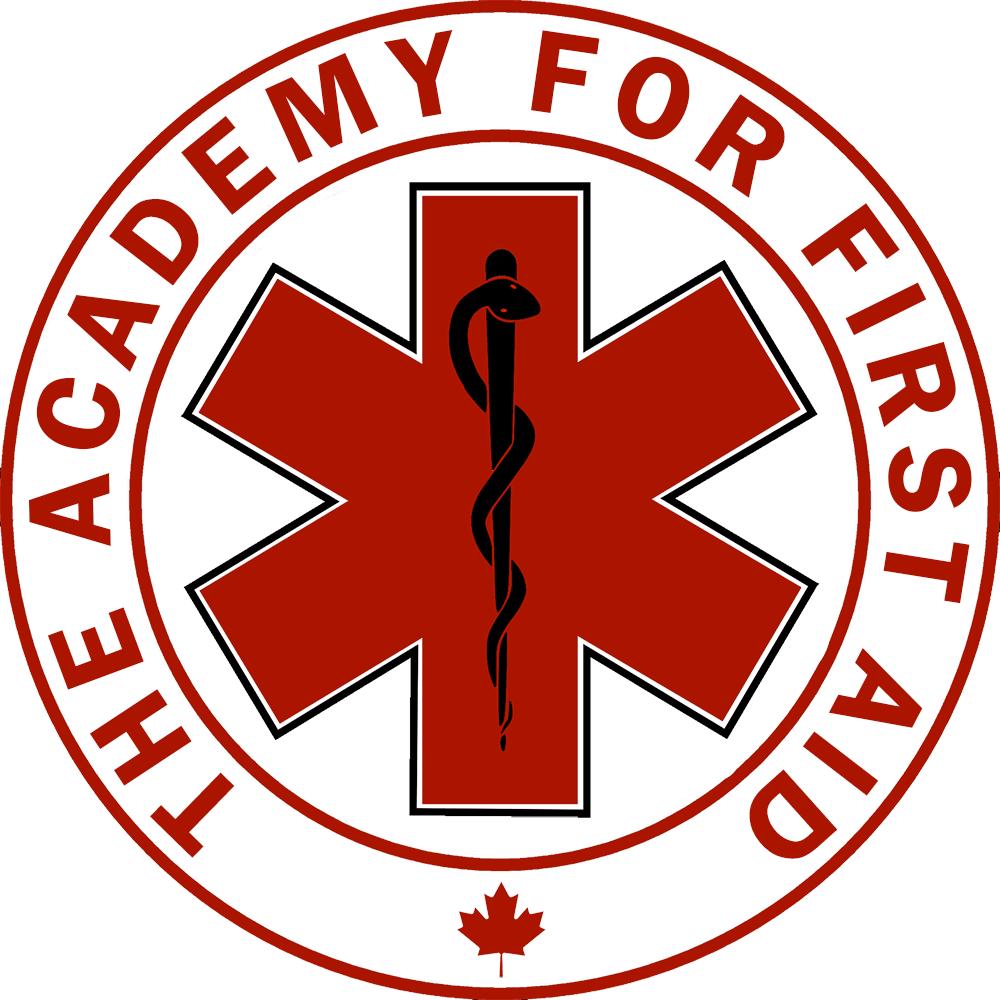- About Us:
- Toronto & Vaughan Courses:
- Brampton Courses:
- Hamilton Courses:
- Scarborough Courses:
- Barrie / Innisfil Courses:
- Mississauga Courses:
- BLS (HCP) Courses:
- Corporate Training (On-site group training):
- Contact:
basic life support training for
TORONTO PUBLIC HEALTH
The Academy for First Aid and Safety is a WSIB and CSA approved basic life support training provider for healthcare providers. Our knowledge and expertise providing critical care life support training is second to none. We are proud to be the selected training provider for Toronto Public Health in 2021 at The Metro Toronto Convention Centre’s mass vaccination clinic!
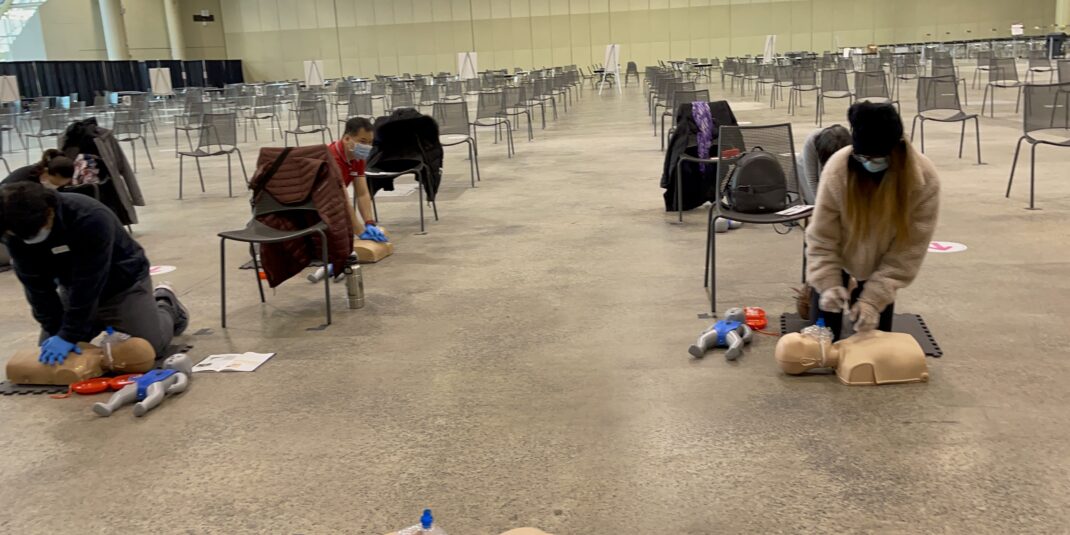
BLS at Metro Toronto Convention Centre: February 2021:
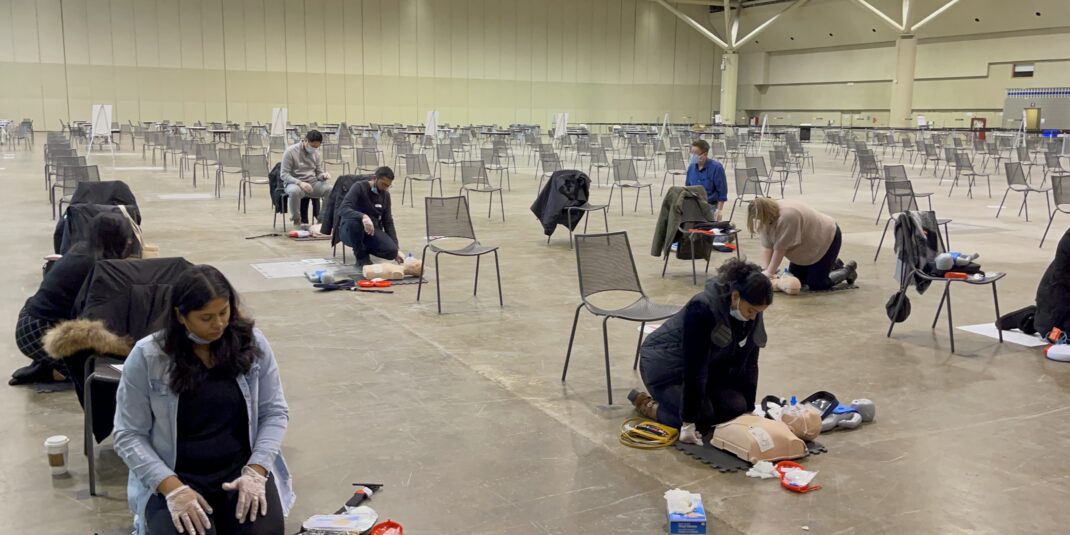
Basic Life Support for Toronto Public Nurses:
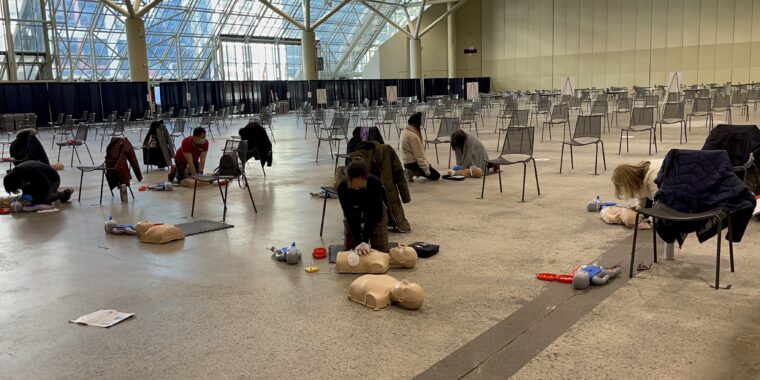
WSIB approved trainer for Basic Life Support (HCP):
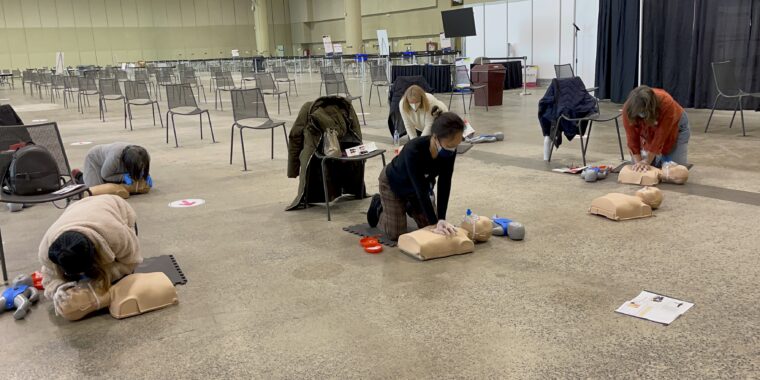
CPR with AED training for Toronto Public Health:
Are you a nurse, personal support worker, or first responder responsible for providing critical care? Are you a student at a community college or university seeking to get your proper CPR and basic life support certifications for your course prerequisites? If so, The Academy for First Aid and Safety wishes to invite you to any of our 5 locations across the Greater Toronto area to participate in our life support classes which are geared towards healthcare providers in the healthcare industry!
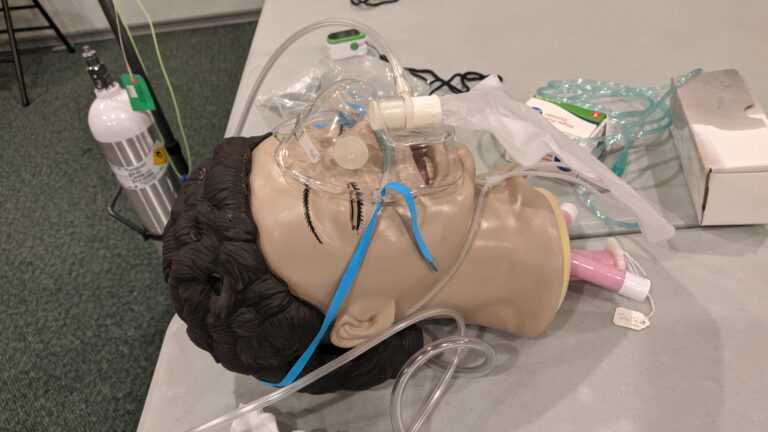
The Academy for First Aid and Safety is committed to provide unparalleled basic life support for our heroes during the Covid-19 pandemic. Our expertise and training is second to none.
The Academy for First Aid and Safety Follow
Why choose The Academy for First Aid and Safety for your basic life support (HCP) needs?
- WSIB and CSA approved basic life support provider!
- WSIB Ontario approved certification: Authorized providers of Emergency Medical Training Canada!
- Modern training equipment: all CPR mannequins have light sensor feedback!
- 5 locations to serve you!
- 2000 square foot training rooms for social distancing!
- Toronto facility is a Covid-safe facility with plexiglass barriers!
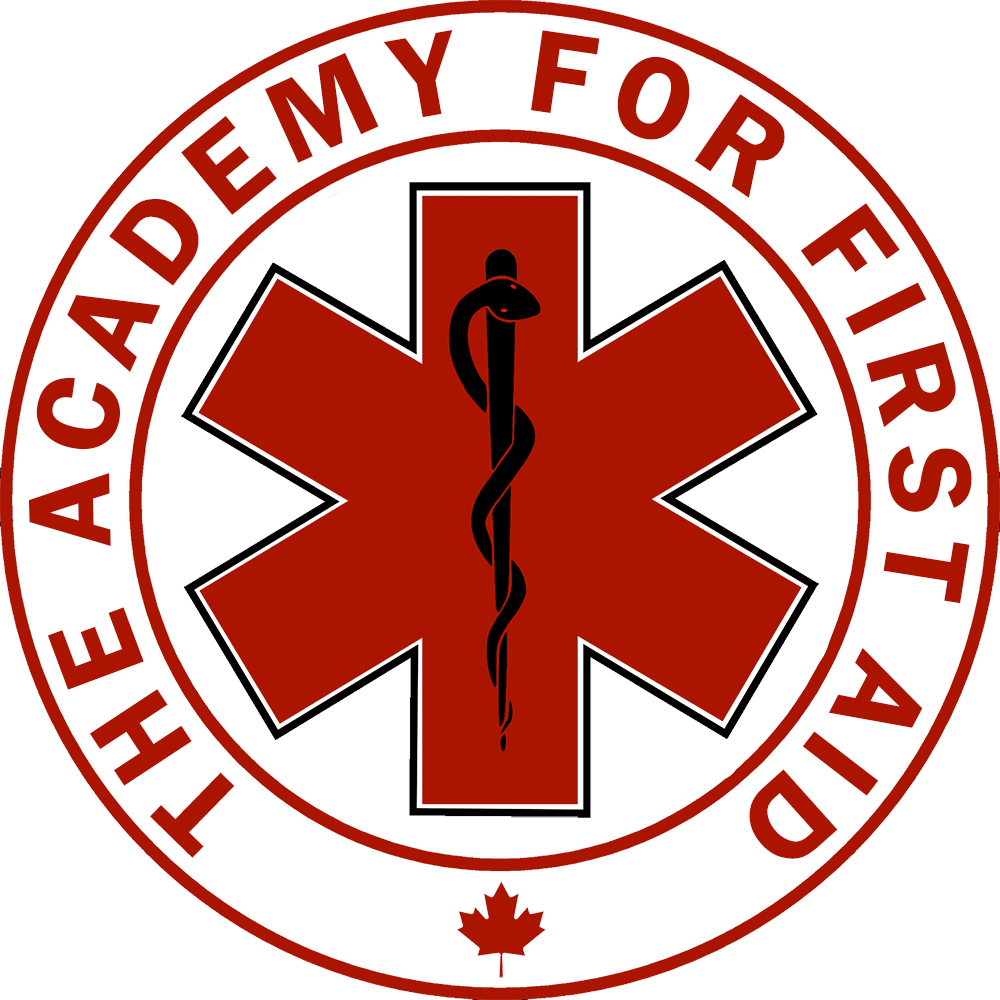
5 CONVENIENT LOCATIONS
BASIC LIFE SUPPORT
(HCP)
- 2 hours online + 3 hours in class training
- WSIB Ontario approved
- 12 month expiry date
- 10:00am-1:00pm

5 CONVENIENT LOCATIONS
BASIC LIFE SUPPORT RECERTIFICATION
- 2 hours online + 3 hours in class training
- WSIB Ontario approved
- 12 month expiry date
- 10:00am-1:00pm

5 CONVENIENT LOCATIONS
STANDARD FIRST AID WITH BLS
- 7 hours online + 7 hours in class training
- WSIB Ontario approved
- Three year expiry date
- 10:00am-5:00pm

